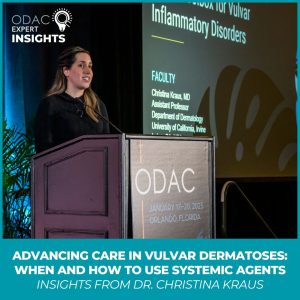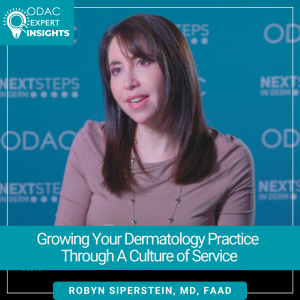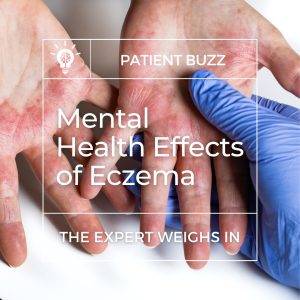
At the 2025 ODAC Dermatology Conference, Christina Kraus, MD, FAAD, reviewed systemic treatment options for refractory vulvar inflammatory dermatoses, such as lichen sclerosus (LS), lichen planus (LP), and lichen simplex chronicus (LSC). While most cases respond to potent topical corticosteroids, systemics may be needed for severe or pre-scarring disease, recalcitrant symptoms, or when topical use is limited by side effects or patient preference.
Key takeaways:
- When to consider systemics: severe/refractory disease, extragenital involvement, prevention of scarring, poor quality of life, or steroid-sparing needs.
- Common agents: oral retinoids, methotrexate, mycophenolate mofetil, adalimumab; systemic steroids mainly for short-term use.
- Emerging options: IL-23 inhibitors and JAK inhibitors show promise but require further study.
- Condition-specific notes:
- LS: maintenance therapy critical to prevent scarring/malignancy.
- LP: erosive type often requires systemic therapy; overlap with LS should be considered.
- LSC: no scarring risk but major quality-of-life impact; systemic immunosuppressants, dupilumab, or neuropathic agents may help.
- Approach: shared decision-making, patient counseling, monitoring, and collaboration with gynecology/rheumatology as appropriate.
Bottom line: Systemic agents can expand therapeutic options for vulvar dermatoses when topicals fail, but careful patient selection, counseling, and ongoing study of newer therapies are essential.
This session summary was written by Kala Hurst, DO, and published on Next Steps in Derm.
Register for ODAC 2026 for more medical dermatology updates.




